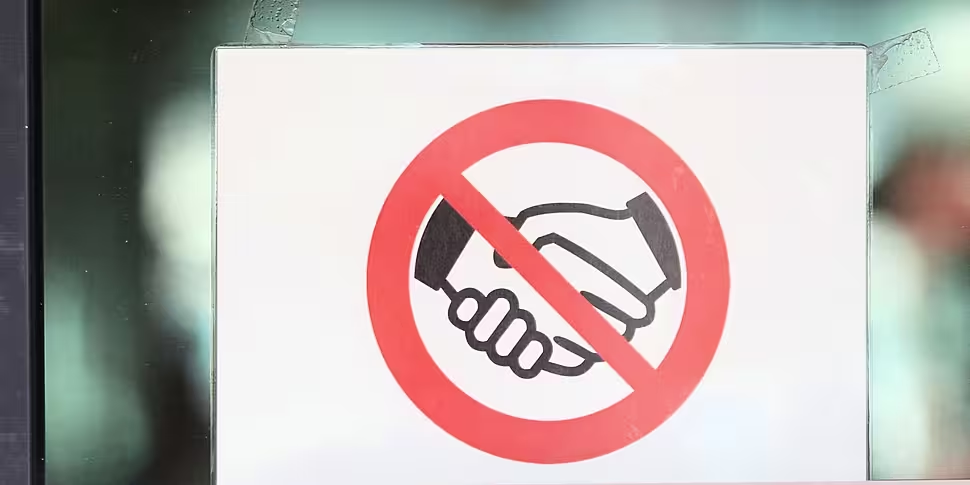There are fears the age-old habit of shaking hands to greet people could be on the way out, over hygiene concerns with the pandemic.
A behavioral scientist says handshakes are no longer a sign of trust.
Claire Coogan spoke to Josh Crosbie for Newstalk Breakfast as part of Reimagining Ireland: a new series examining some of the changes people would like to see across a range of areas in a post-pandemic Ireland.
Ms Coogan, from Behavior Wise, said the sudden change in behavior shows humans' natural adaptability.
"I think in times of COVID, what's incredible is how adaptable we are as human beings.
"And when you think about it, it's really amazing how quickly we've adapted to this.
"For thousands of years, our brains have associated handshakes with trust and connection - and now all of a sudden we're associating them with potential contamination.
"We do need to find other ways to convey trust".
She suggested eye contact, or simply waving or nodding at someone, can reassure people.
On the handshake itself, she said it is a universally understood sign.
"It's one of those unusual gestures that's universally recognised as a sign of goodwill.
"And I suppose the common theme throughout is that it signals trust and respect between people".
'A warm glow effect'
She said touch actually plays an important part in our brains.
"Any form of human touch actually gives us what we call a warm glow effect - whether that's a handshake, hug or a massage.
"When it comes to shaking hands, our brain releases a hormone called oxytocin which is also known as the bonding hormone.
"It got its name because it's the hormone that develops when a mother bonds with her child; and in all of us, oxytocin encourages a desire for connection or empathy."
She said it can also help reduce anxiety levels and build trust.
"When we shake hands, effectively we're sending a signal to our brain that we want to form or strengthen a connection with somebody - and that we want to show them that we trust them".
Last year the head of the US COVID-19 Taskforce, Dr Anthony Fauci, said he did not see people ever shaking hands again.
But Ms Coogan suggested: "I do think, long-term, I do think that the handshake will come back".









